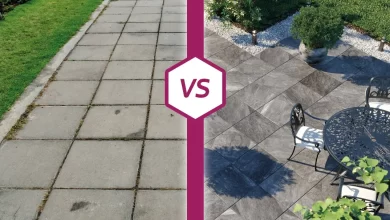Alcohol and Drug Intervention Services

An intervention is a method of gathering individuals who care about someone suffering from addiction or substance abuse issues. The purpose is to motivate the individual to seek help and demonstrate how much their lives have been impacted by their choices.
Interventions can take many forms. The most important thing when selecting one is that it be founded in love, honesty and support.
What is an Intervention?
An intervention is a structured way for family and friends to confront an addict and motivate them to seek treatment. It could take place in person or involve an outside professional; whatever the approach, an intervention is an essential tool in helping your loved one obtain the help they need to stop using drugs or alcohol.
A successful intervention can inspire your loved one to seek treatment and begin the long road to recovery. It may also reduce tension within their family, giving everyone in the home an opportunity to work out problems that might be interfering with daily living.
Conducting an intervention requires using positive communication techniques and remaining calm. Doing this helps avoid arguments or name-calling that can deflect or derail the conversation. Furthermore, getting everyone on the same page is essential in this process as anger and blame can be particularly disruptive to family relationships.
Who Can Participate in an Intervention?
Family members and close friends may opt to participate in an intervention if they wish to assist their loved one with addiction recovery. However, the process of planning and conducting such a meeting requires professional expertise.
Intervention should involve the closest family and romantic partners of the person with an addiction, including spouses or romantic partners, children and close friends.
When a group of people confront an individual with substance use disorder, their primary goal should be to convince them to seek treatment. They should present them with a pre-rehearsed message as well as possible outcomes if they do not accept help.
Meetings should take place in an atmosphere that makes the person with addiction comfortable, such as a conference room at work; alternatively, they could take place at someone’s home or a public venue like a mall.
Depending on the severity of an addiction, an intervention can range from a brief event to an entire day. It is essential that only close family and friends attend as casual acquaintances may create an even more negative atmosphere.
Furthermore, if the loved one is still under the influence of drugs or alcohol, they should not be permitted to join in the intervention. Doing so could potentially aggravate their condition and raise the likelihood that they commit suicide.
Addiction is a complex issue that involves many elements, including family and social support as well as genetics. Even with an extensive support system, it may not be enough to motivate your loved one to seek treatment for their addiction. That’s why it is essential to reach out for professional assistance as soon as possible.
How Do Interventions Work?
Are you considering organizing an intervention to assist a loved one who is struggling with substance abuse, there are a few things to consider before beginning the planning. Interventions serve to motivate those affected by addictions to seek treatment and demonstrate how their choices have negatively affected their lives.
Group interventions for addiction often consist of family, friends, co-workers and even faith leaders or others who care about the addict. A licensed alcohol and drug counselor or intervention professional may also be included in this process.
Arranging an intervention can be a difficult process, but it’s worth the effort if you want to help your loved one recover. You will need to collect information about their behavior and how it has impacted you, then set boundaries and consequences if they don’t accept treatment.
You might also discuss how drugs and alcohol have negatively impacted other aspects of your life, such as health or finances. While these stories can be emotionally charged, they can also be an effective tool in persuading someone with addiction to seek help.
What Are the Different Types of Interventions?
An intervention is a type of therapy designed to assist those addicted to alcohol or drugs in recognizing the emotional and behavioral triggers that lead to their drug use and understanding how they can alter these habits. Furthermore, intervention provides them with the support needed for recovery from substance abuse disorders, as well as tools for staying sober long-term.
Interventions can be conducted by friends, family members, therapists or professionals in addiction treatment. The main goal is to convince someone suffering from an addiction to seek help and stop using drugs and alcohol.
Different interventions exist, such as crisis, classical, and family system ones. A trained interventionist can assess a situation and select an approach that works best for it.
Conclusion
Crisis interventions are commonly conducted when substance abuse problems have reached a life-threatening point. These efforts usually involve a group of people who come together and confront the person with the issue, in an effort to motivate them towards seeking treatment.
Classical intervention is typically carried out by a group of individuals, often close family and friends, who want to see your loved one get help for their substance abuse issues. At these gatherings, people try to explain how the addiction impacts them personally and motivate the addict to attend treatment.





